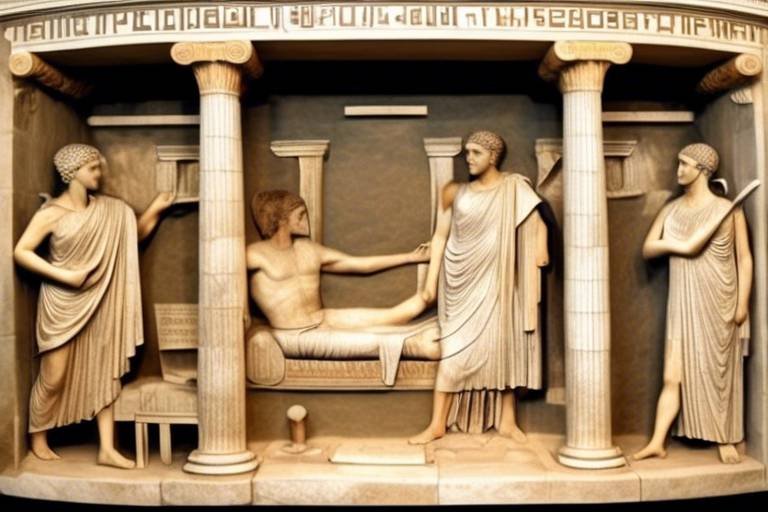The Mystery of the Ancient Greeks' Literary Contributions
When delving into the vast tapestry of Ancient Greek literature, one cannot help but be captivated by the profound mysteries and enduring contributions left by this ancient civilization. From epic poems to philosophical treatises, Greek literature has shaped the foundation of Western literary traditions and continues to influence modern works of art and culture.
The literary legacy of the Ancient Greeks is a treasure trove of knowledge and creativity, encompassing a wide array of genres and themes that have stood the test of time. Through their works, the Ancient Greeks explored fundamental questions about humanity, morality, and the nature of existence, leaving behind a legacy that continues to inspire and intrigue readers and scholars alike.
From the epic tales of Homer to the philosophical musings of Plato and Aristotle, the Ancient Greeks laid the groundwork for a rich and diverse literary tradition that has transcended centuries. Their works continue to be studied and celebrated for their timeless themes, compelling narratives, and profound insights into the human experience.
As we unravel the mysteries behind renowned works such as the Iliad, Odyssey, and Aesop's fables, we gain a deeper appreciation for the enduring impact of Greek literature on modern storytelling and cultural discourse. The legacy of Ancient Greek literature is a testament to the power of words and the enduring relevance of ancient wisdom in our contemporary world.

The Birth of Greek Literature
The birth of Greek literature marks a pivotal moment in the history of human expression, laying the foundation for the rich tapestry of literary traditions that followed. At the heart of this literary awakening were the epic poems of Homer, such as the Iliad and the Odyssey, which captured the heroic deeds and mythical adventures of ancient Greek heroes. These epic narratives not only entertained audiences but also served as a cultural touchstone, reflecting the values and beliefs of the ancient Greek society.
As Greek civilization flourished, so too did the diversity of literary forms. The emergence of lyric poetry introduced a more personal and emotional style of writing, exploring themes of love, loss, and the beauty of the natural world. Meanwhile, the development of dramatic plays brought storytelling to life on the stage, engaging audiences with compelling narratives and complex characters.
Delving into the cultural and historical context of Ancient Greece reveals a society teeming with creativity and intellectual curiosity. The interplay of mythology, philosophy, and artistic expression laid the groundwork for a literary renaissance that continues to captivate readers and scholars to this day.
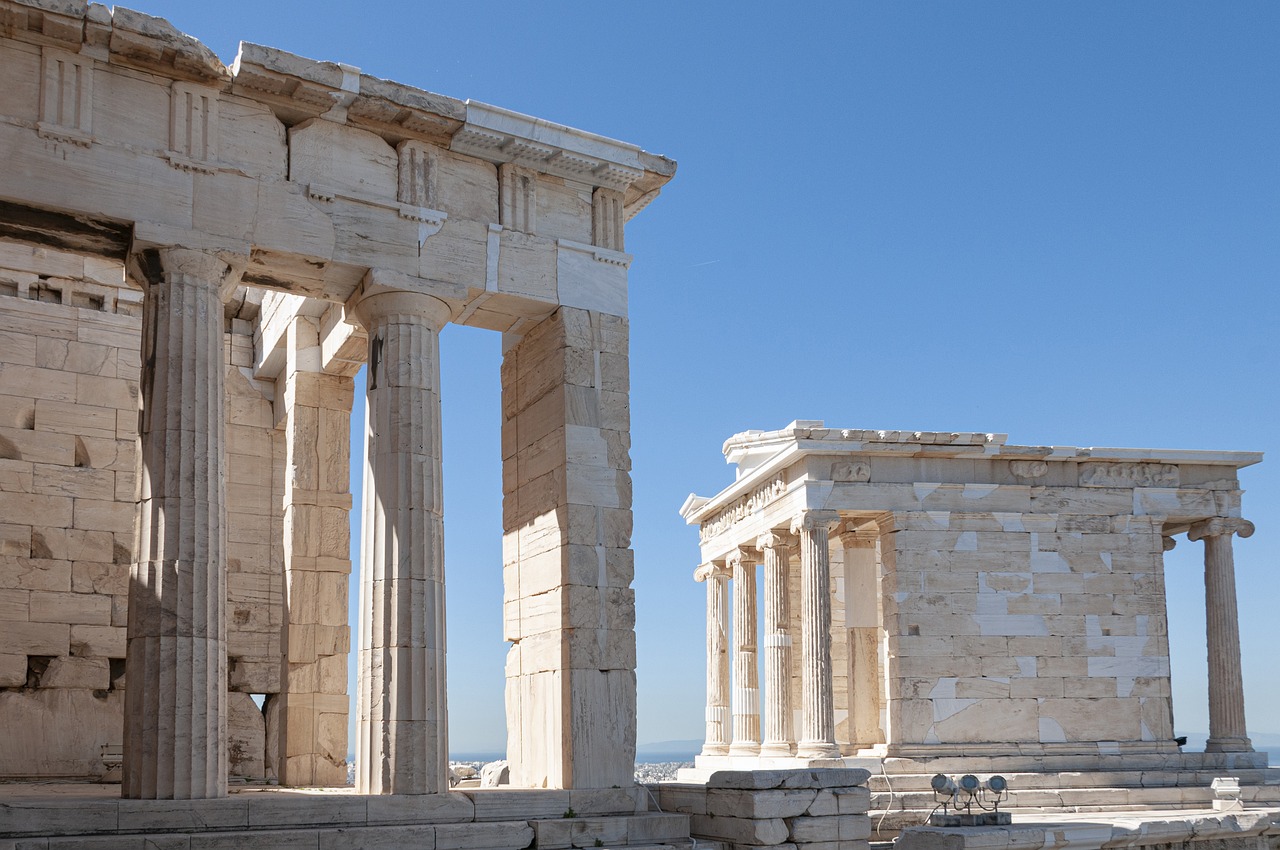
Greek Philosophical Texts
Greek Philosophical Texts delve into the profound and timeless works of Ancient Greek philosophers, shaping the very foundation of Western philosophical thought. From the dialogues of Plato to the ethical teachings of Aristotle and the probing inquiries of Socrates, these texts continue to spark intellectual curiosity and contemplation.
Plato, known for his allegorical storytelling and exploration of ideal forms, invites readers into a world of philosophical inquiry through works like "The Republic" and "Symposium." His concept of the philosopher-king and the theory of forms have left an indelible mark on philosophical discourse.
Aristotle, a polymath whose works span from metaphysics to ethics, offers systematic analyses of virtue, happiness, and the nature of reality in texts such as "Nicomachean Ethics" and "Physics." His emphasis on empirical observation and logical reasoning laid the groundwork for scientific inquiry.
Socrates, the enigmatic figure who left no writings of his own, is immortalized through the dialogues of his student Plato. Through the Socratic method of questioning, he challenged conventional wisdom and encouraged self-examination, leaving a legacy of intellectual humility and critical thinking.
These philosophical texts not only explore fundamental questions about existence, morality, and knowledge but also provide a framework for ethical living and the pursuit of truth. Their enduring relevance underscores the profound impact of Ancient Greek philosophy on the intellectual heritage of humanity.
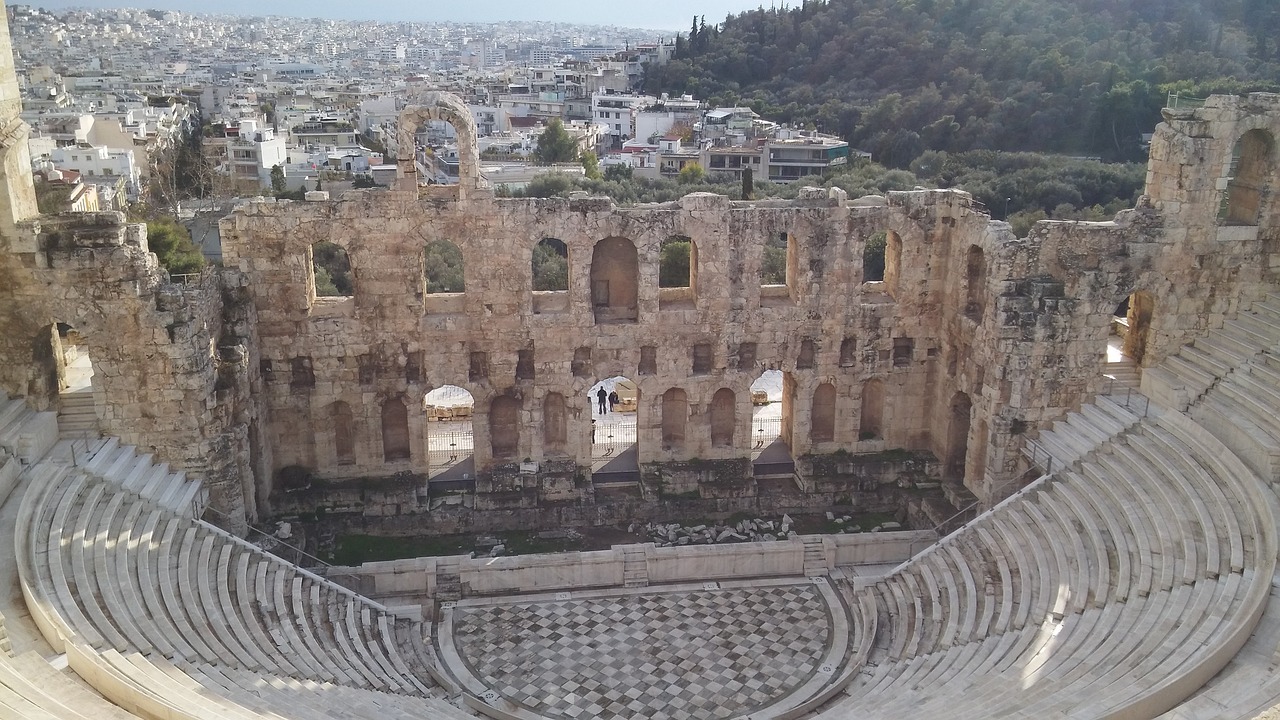
The Influence of Greek Mythology
When delving into the rich tapestry of Greek mythology, one cannot help but be mesmerized by its profound influence on literature, art, and culture throughout history. These ancient myths, filled with gods, heroes, and fantastical creatures, have woven themselves into the very fabric of storytelling, leaving an indelible mark on the world of literature.
The stories of Greek mythology are not merely tales of gods and mortals; they are symbolic narratives that delve into the depths of human experience, exploring themes of love, betrayal, heroism, and tragedy. From the epic adventures of Odysseus in the Odyssey to the tragic fate of Oedipus in Oedipus Rex, these myths continue to captivate readers and inspire countless works of fiction and fantasy.
One cannot overlook the profound impact of Greek mythology on art and culture. From ancient pottery and sculpture to Renaissance paintings and modern films, the imagery and themes of Greek myths have permeated artistic expression across centuries. The iconic figures of Zeus, Athena, and Hercules have become cultural touchstones, embodying timeless ideals and archetypes.
Moreover, the symbolic significance of Greek myths extends beyond mere entertainment; these stories serve as allegorical reflections of the human condition, offering profound insights into the complexities of life, death, and the eternal struggle between order and chaos. Whether exploring the hubris of Icarus or the perseverance of Prometheus, these myths continue to resonate with audiences worldwide.
In conclusion, the influence of Greek mythology on literature, art, and culture is undeniable, shaping the way we perceive the world and inspiring generations of storytellers and artists. The enduring power of these ancient myths serves as a testament to the timeless relevance of the human experience, transcending time and space to touch the hearts and minds of all who encounter them.

Greek Drama and Tragedy
Greek drama and tragedy stand as monumental pillars of Ancient Greek literature, captivating audiences with their powerful storytelling and profound themes. The works of renowned playwrights such as Aeschylus, Sophocles, and Euripides not only entertained but also served as a reflection of the societal values and moral dilemmas of the time. These dramatic performances, staged in grand amphitheaters, held the power to evoke a range of emotions in spectators, from joy to sorrow, from fear to catharsis.
One of the defining features of Greek drama is the use of tragic plots that explore the complexities of human nature and the consequences of hubris. The concept of fate, the struggle between free will and destiny, and the inevitable downfall of tragic heroes are recurring motifs that continue to resonate with audiences today. The structure of Greek plays, with their use of choruses, dialogue, and monologues, set the stage for the development of theatrical conventions that would influence drama for centuries to come.
Tragedy, as depicted in Greek plays, served a dual purpose: to entertain and to educate. Through the suffering and eventual catharsis experienced by the characters on stage, audiences were confronted with moral dilemmas and existential questions that prompted introspection and self-reflection. The themes of justice, vengeance, loyalty, and the nature of divinity were explored in depth, challenging viewers to confront their own beliefs and values.
The enduring legacy of Greek drama and tragedy can be seen in the continued adaptation of these ancient works in contemporary literature, theater, and film. The tragic hero, the dramatic irony, and the cathartic release of emotions remain integral components of storytelling that trace their origins back to the theaters of Ancient Greece. The influence of Greek tragedy extends beyond the stage, shaping our understanding of human nature and the complexities of the human experience.
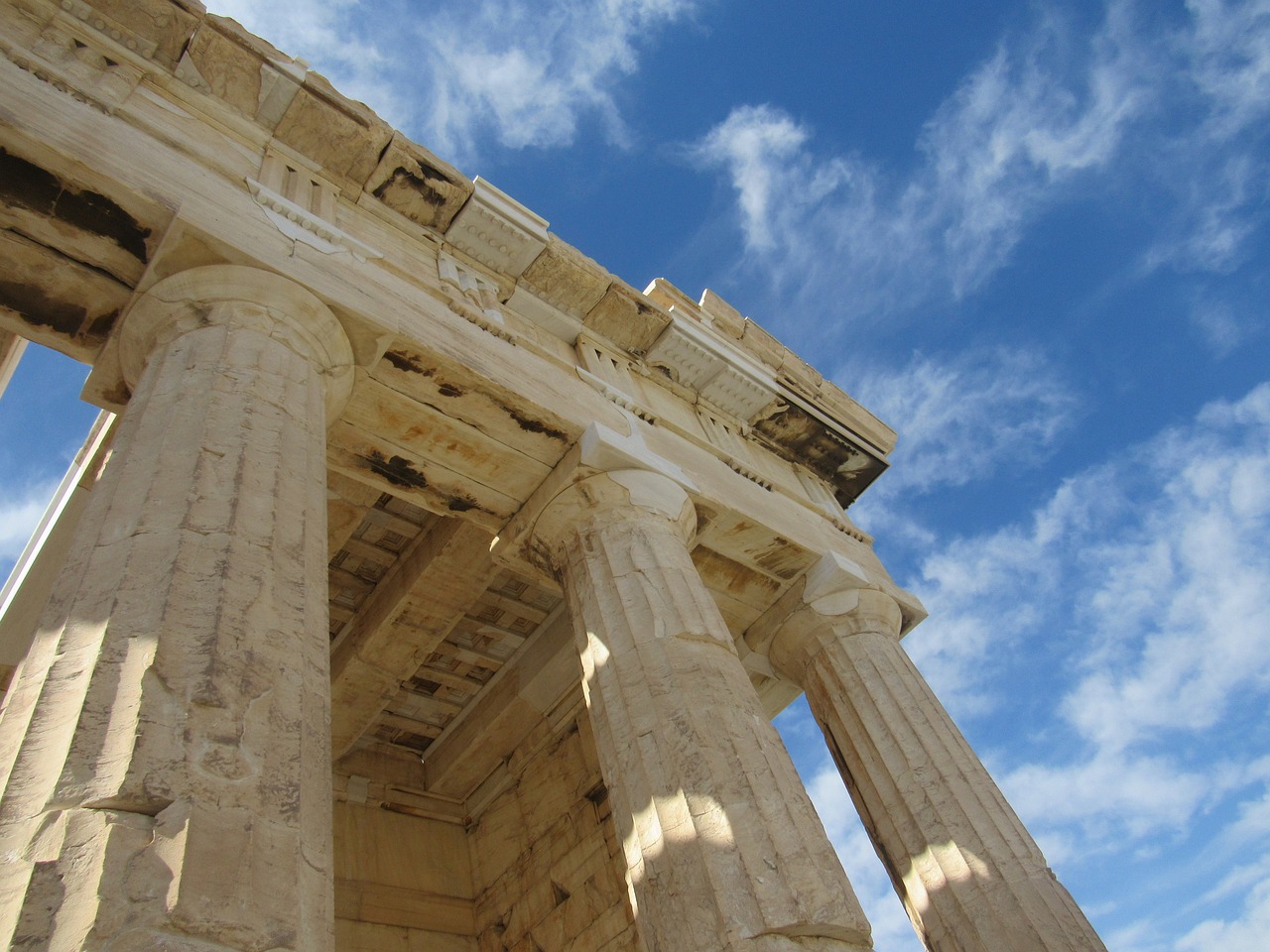
The Literary Legacy of Sappho
Sappho, the revered poet from the island of Lesbos, holds a unique place in the annals of literature with her lyrical poetry that delves deep into themes of love, desire, and the complexities of human emotions. Her works, though fragmented over time, continue to resonate with readers and scholars alike, offering a glimpse into the intimate thoughts and experiences of a woman in ancient Greece. Sappho's verses, often addressing the themes of passion and longing, have inspired countless poets and writers throughout history, cementing her legacy as a pioneer of personal expression in poetry.
Known for her innovative use of imagery and emotional depth, Sappho's poetry transcends time and cultural boundaries, speaking to the universal experiences of love, loss, and longing. Her unique voice, characterized by its sensitivity and introspection, has left an indelible mark on the literary landscape, influencing generations of writers who have sought to capture the essence of human relationships and emotions in their own works.
Despite the challenges of preserving ancient texts, Sappho's fragments have survived the ravages of time, offering a tantalizing glimpse into a poetic tradition that celebrates the complexities of human experience. Scholars and enthusiasts continue to study and interpret her works, piecing together the fragments to reconstruct a portrait of a poet whose words have transcended centuries to touch the hearts of readers around the world.
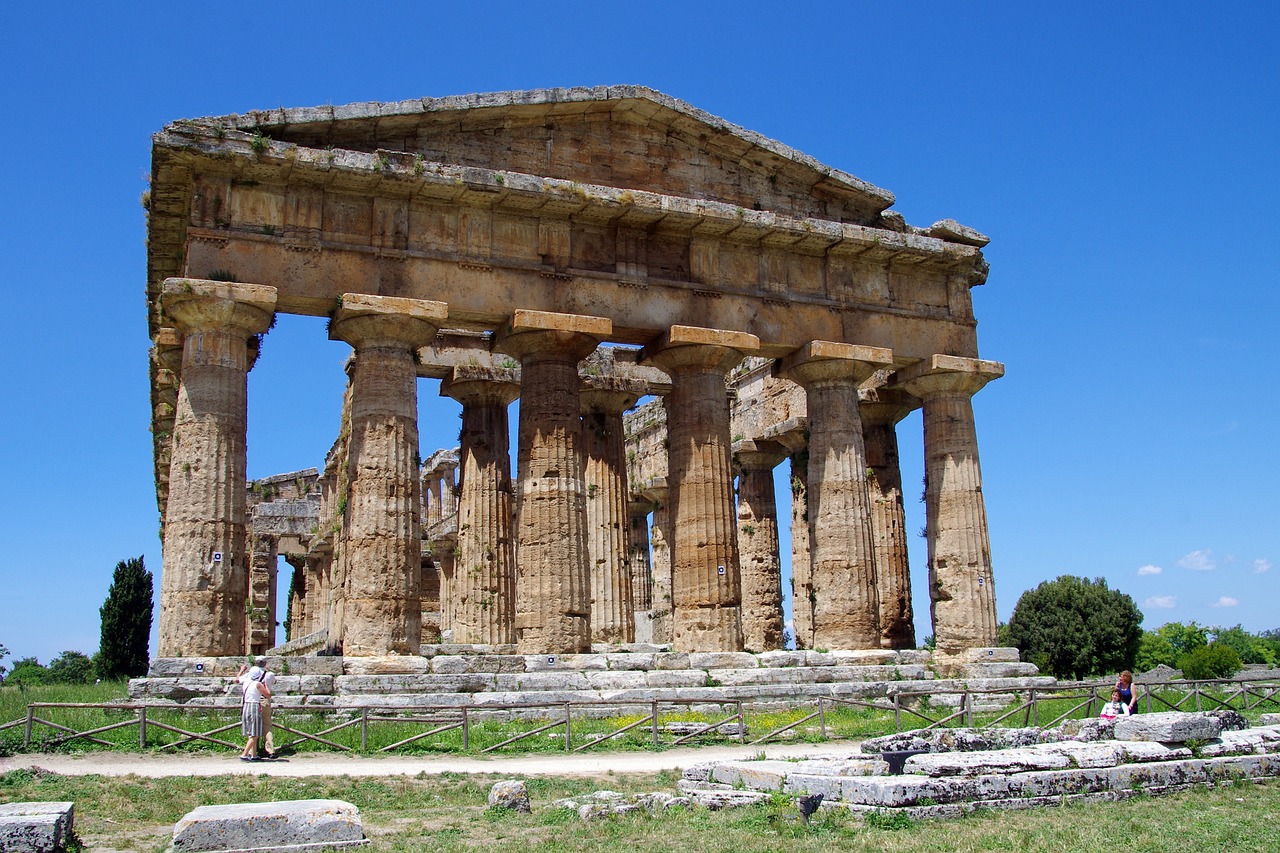
Aesop's Fables and Moral Tales
Aesop's Fables and Moral Tales have stood the test of time, captivating readers with their timeless wisdom and universal truths. These moral tales, attributed to the ancient Greek storyteller Aesop, continue to resonate with audiences of all ages, imparting valuable lessons through the art of storytelling.
One of the key features of Aesop's fables is their ability to convey complex moral lessons in a simple and engaging manner. Through the use of animal characters and allegorical storytelling, Aesop masterfully weaves tales that explore themes of human nature, ethics, and social behavior.
Each fable serves as a microcosm of the human experience, offering insights into the consequences of greed, dishonesty, and hubris, as well as the rewards of honesty, kindness, and humility. These moral tales act as mirrors reflecting the virtues and vices inherent in society, prompting readers to reflect on their own actions and choices.
Moreover, Aesop's fables often feature unexpected plot twists and clever resolutions that leave a lasting impact on the reader. By presenting moral dilemmas and ethical quandaries in a relatable and accessible way, these tales encourage critical thinking and moral reflection.
Furthermore, the cultural significance of Aesop's fables extends beyond their moral teachings. These stories have been retold and adapted across different cultures and time periods, demonstrating their enduring relevance and universal appeal. The themes explored in Aesop's fables continue to resonate with readers worldwide, transcending linguistic and cultural barriers.
In conclusion, Aesop's Fables and Moral Tales serve as a timeless treasure trove of wisdom, offering valuable insights into human nature and ethical behavior. Through engaging storytelling and profound moral lessons, these tales continue to inspire and educate readers of all ages, reaffirming the enduring power of storytelling as a tool for moral instruction and reflection.
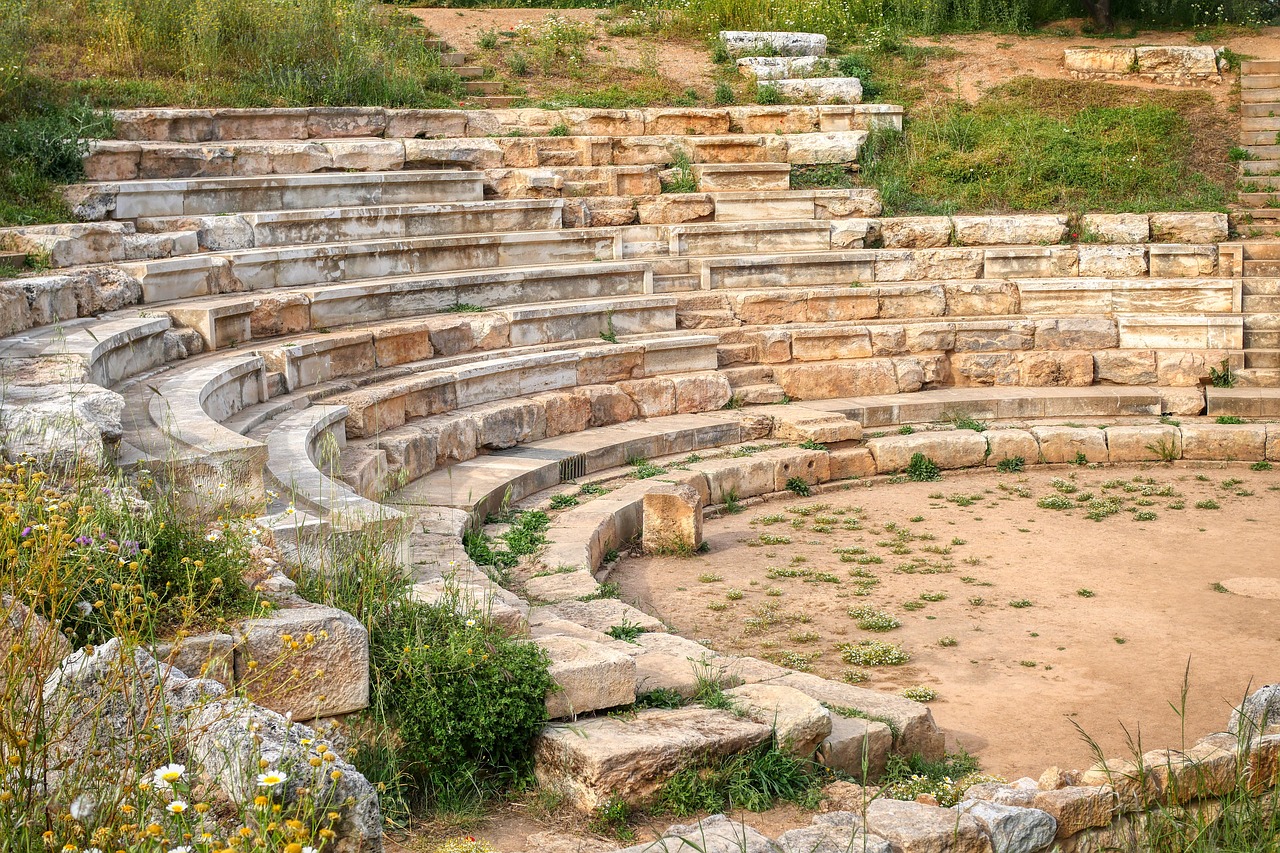
The Epic Poetry of Hesiod
The Epic Poetry of Hesiod delves into the profound themes of labor, justice, and the origins of the cosmos, encapsulating the essence of Ancient Greek storytelling. Hesiod's renowned works Works and Days and Theogony stand as pillars of epic poetry, offering insights into the moral fabric of society and the divine hierarchy of the universe. Through vivid imagery and allegorical narratives, Hesiod weaves a tapestry of myths and teachings that resonate across generations, influencing subsequent poets and preserving the rich tapestry of Greek mythology.

Works and Days
Nine aspects shedding light on the literary legacy of Ancient Greeks, exploring their influence on modern literature, drama, poetry, philosophy, and mythology. Unraveling the mysteries behind renowned works like the Iliad, Odyssey, Aesop's fables, and the enduring impact of Greek tragedies.
Exploring the origins of Greek literature, from the epics of Homer to the emergence of lyric poetry and the development of dramatic plays. Delving into the cultural and historical context that shaped the early literary landscape of Ancient Greece.
Investigating the profound philosophical texts of Ancient Greece, including the works of Plato, Aristotle, and Socrates. Analyzing their enduring influence on Western philosophy and the exploration of fundamental questions about existence, ethics, and the nature of reality.
Examining the rich tapestry of Greek mythology and its impact on literature, art, and culture. Unraveling the stories of gods and heroes, exploring their symbolic significance, and tracing their enduring presence in contemporary works of fiction and fantasy.
Diving into the world of Greek drama and tragedy, from the works of Aeschylus, Sophocles, and Euripides to the structure of Greek plays and the evolution of theatrical conventions. Exploring the cathartic power of tragedy and its role in ancient society.
Exploring the life and works of Sappho, the renowned poet from the island of Lesbos. Investigating her lyrical poetry, themes of love and desire, and the enduring legacy of her unique voice in the history of literature and feminist discourse.
Unpacking the timeless wisdom of Aesop's fables, a collection of moral tales that continue to resonate with readers of all ages. Analyzing the storytelling techniques, moral lessons, and cultural significance of these enduring literary treasures.
Delving into the epic poetry of Hesiod, particularly his works Works and Days and Theogony. Exploring themes of labor, justice, and the origins of the cosmos, and examining Hesiod's influence on later poets and the preservation of Greek mythological traditions.
Reflecting on the lasting impact of Ancient Greek literature on the development of Western literary traditions. Examining how Greek literary works continue to inspire writers, thinkers, and artists across the globe, shaping the way we perceive and engage with the world.
Works and Days is a didactic poem attributed to the ancient Greek poet Hesiod. This work serves as a practical guide for agricultural life, offering advice on farming practices, the observance of the seasons, and the importance of hard work. Hesiod intertwines moral lessons with descriptions of the natural world, emphasizing the virtues of diligence and justice. The poem also delves into the concept of cosmic justice, portraying a world where the gods oversee human behavior and ensure that righteousness is rewarded while wrongdoing is punished. Through Works and Days, Hesiod provides a glimpse into the daily struggles and triumphs of ancient Greek society, offering a timeless reflection on the human experience and the pursuit of a virtuous life.
Q: How did Ancient Greek literature influence modern works?
A: Ancient Greek literature laid the foundation for many literary genres and themes that continue to inspire writers today. From epic poetry to philosophical dialogues, Greek works have shaped the way we approach storytelling, ethics, and the exploration of human nature.
Q: What is the significance of Greek mythology in literature?
A: Greek mythology has provided a rich source of inspiration for countless works of literature, art, and culture. The timeless tales of gods, heroes, and monsters offer symbolic depth and narrative complexity that continue to captivate audiences and influence creative expression.
Q: How did Greek tragedy impact ancient society?
A: Greek tragedy served as a form of catharsis for audiences, allowing them to experience intense emotions and reflect on moral dilemmas presented in the plays. Tragedy also provided a platform for societal critique and the exploration of complex human emotions, shaping cultural norms and values.

and
And so, we come to the intertwining threads of Greek literature that have woven a rich tapestry of storytelling, philosophy, and wisdom throughout the ages. The legacy of the Ancient Greeks extends far beyond the boundaries of time and space, reaching into the depths of our collective consciousness.
From the epic narratives of Homer to the moral tales of Aesop, each piece of Greek literature holds a unique key to unlocking the mysteries of human experience. These ancient texts serve as guides, illuminating the path of knowledge and understanding for generations to come.
As we delve deeper into the realms of Greek mythology, philosophy, and drama, we uncover hidden truths and timeless lessons that continue to resonate with us today. The echoes of ancient voices reverberate through the corridors of history, reminding us of the enduring power of storytelling and the boundless creativity of the human spirit.
Join us on a journey through the annals of Greek literature, where the past meets the present in a dazzling display of literary brilliance and cultural significance. Let us explore the depths of the human soul through the words of poets, philosophers, and playwrights who dared to dream beyond the confines of their time.
Prepare to be captivated by the magic of Ancient Greek literature, where each word is a spark that ignites the imagination and each story a tapestry that weaves together the fabric of our shared humanity.
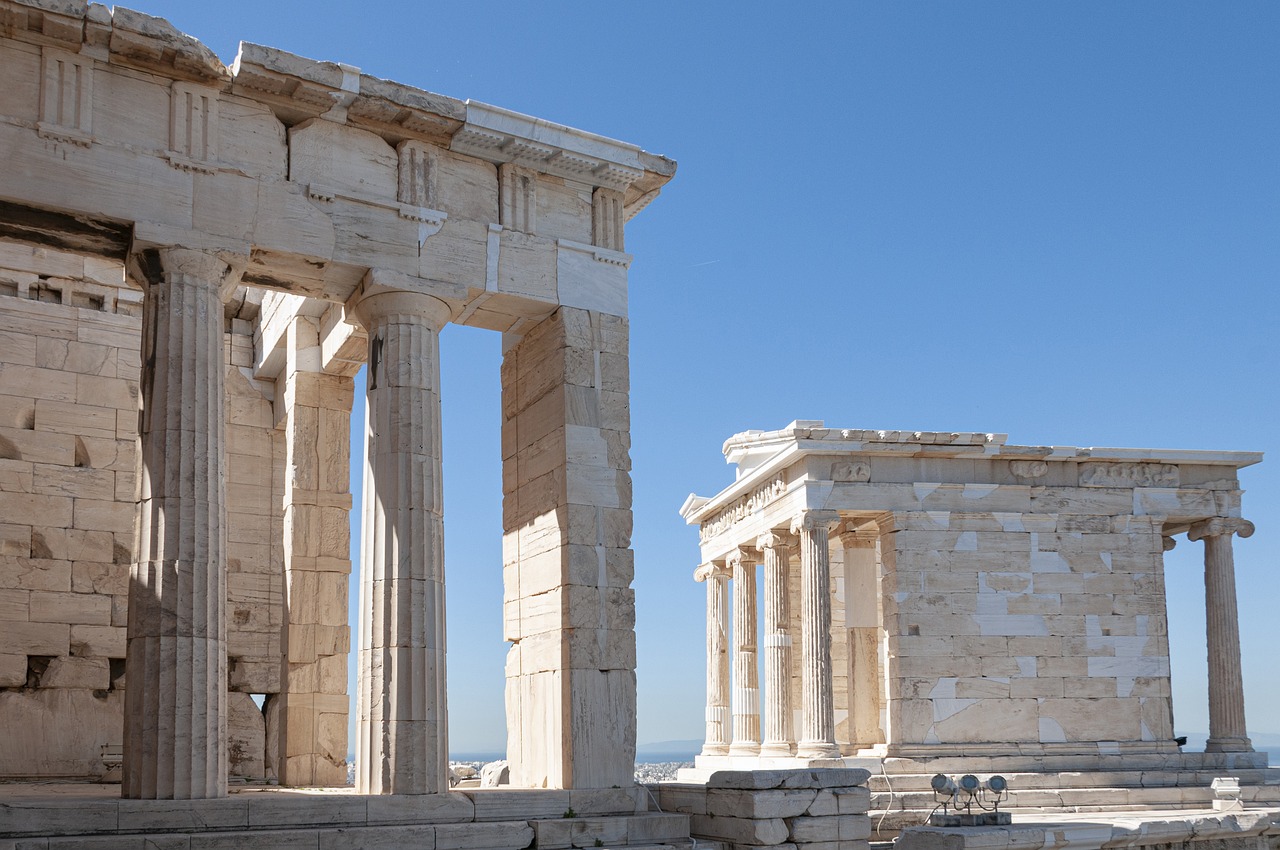
Theogony.
Theogony is a significant work of epic poetry attributed to the ancient Greek poet Hesiod. This masterpiece delves into the genealogy of the gods, detailing the creation of the universe and the divine hierarchy within Greek mythology. Theogony, meaning "the genealogy or birth of the gods," provides a comprehensive account of the origins of the cosmos and the gods who rule over it.
In Theogony, Hesiod narrates the emergence of the primordial deities, such as Chaos, Gaia (Earth), and Uranus (Sky), and traces their lineage through generations of gods and goddesses. The poem explores the intricate relationships and power struggles among the divine beings, shedding light on their roles in shaping the world and governing natural phenomena.
One of the central themes of Theogony is the concept of succession and the cyclical nature of power among the gods. Hesiod portrays a universe governed by a complex system of divine authority, where each deity holds a specific domain and exerts influence over different aspects of life and nature.
Through vivid imagery and vivid storytelling, Theogony offers readers a glimpse into the mythological origins of the Greek pantheon and the cosmic order established by the gods. Hesiod's poetic narrative weaves together themes of creation, fate, and divine justice, providing a foundational mythological framework that has endured through the centuries.
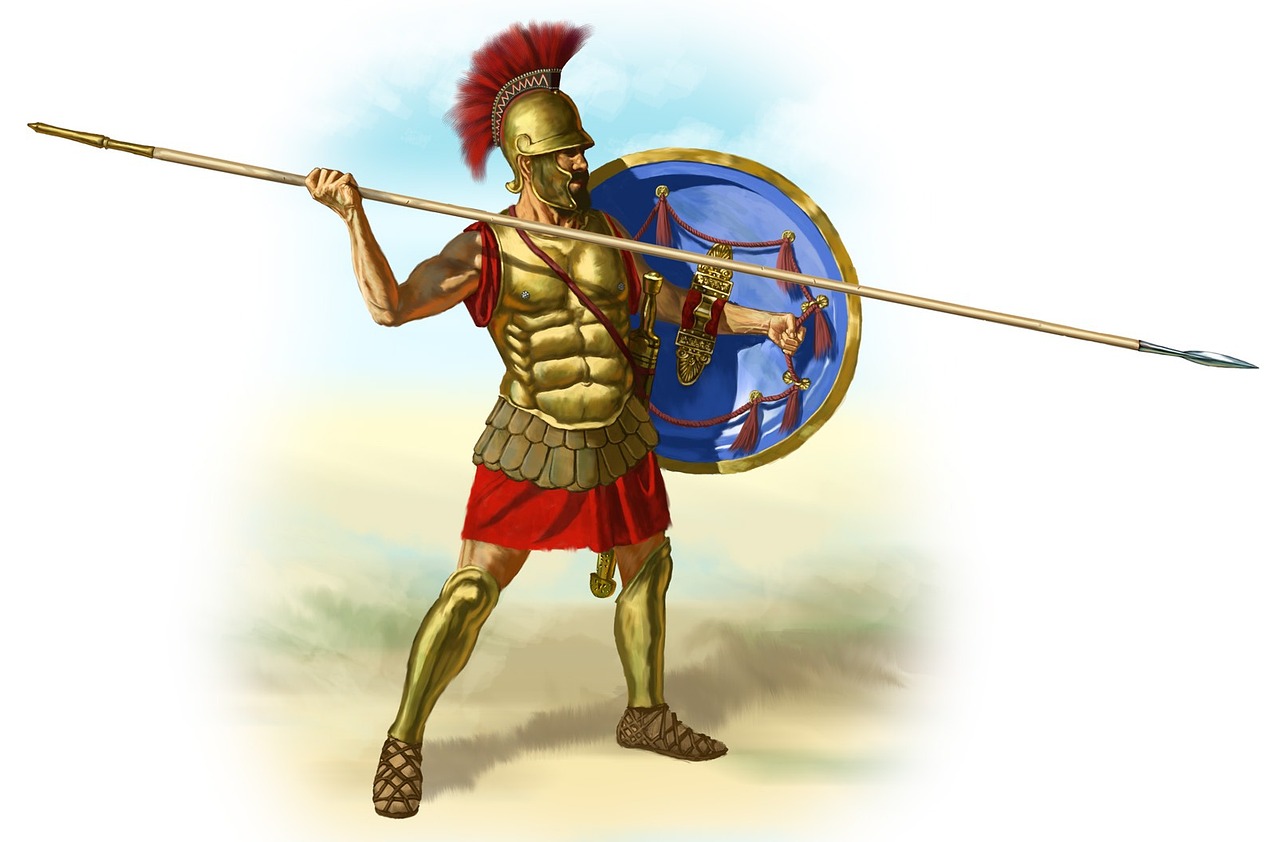
Exploring themes of labor, justice, and the origins of the cosmos, and examining Hesiod's influence on later poets and the preservation of Greek mythological traditions.
Nine aspects shedding light on the literary legacy of Ancient Greeks, exploring their influence on modern literature, drama, poetry, philosophy, and mythology. Unraveling the mysteries behind renowned works like the Iliad, Odyssey, Aesop's fables, and the enduring impact of Greek tragedies.
Exploring the origins of Greek literature, from the epics of Homer to the emergence of lyric poetry and the development of dramatic plays. Delving into the cultural and historical context that shaped the early literary landscape of Ancient Greece.
Investigating the profound philosophical texts of Ancient Greece, including the works of Plato, Aristotle, and Socrates. Analyzing their enduring influence on Western philosophy and the exploration of fundamental questions about existence, ethics, and the nature of reality.
Examining the rich tapestry of Greek mythology and its impact on literature, art, and culture. Unraveling the stories of gods and heroes, exploring their symbolic significance, and tracing their enduring presence in contemporary works of fiction and fantasy.
Diving into the world of Greek drama and tragedy, from the works of Aeschylus, Sophocles, and Euripides to the structure of Greek plays and the evolution of theatrical conventions. Exploring the cathartic power of tragedy and its role in ancient society.
Exploring the life and works of Sappho, the renowned poet from the island of Lesbos. Investigating her lyrical poetry, themes of love and desire, and the enduring legacy of her unique voice in the history of literature and feminist discourse.
Unpacking the timeless wisdom of Aesop's fables, a collection of moral tales that continue to resonate with readers of all ages. Analyzing the storytelling techniques, moral lessons, and cultural significance of these enduring literary treasures.
Delving into the epic poetry of Hesiod, particularly his works Works and Days and Theogony. Exploring themes of labor, justice, and the origins of the cosmos, and examining Hesiod's influence on later poets and the preservation of Greek mythological traditions.
Reflecting on the lasting impact of Ancient Greek literature on the development of Western literary traditions. Examining how Greek literary works continue to inspire writers, thinkers, and artists across the globe, shaping the way we perceive and engage with the world.
Delving into the themes of labor, justice, and the creation of the universe within Hesiod's works. By exploring these themes, we gain insight into the societal values and beliefs of Ancient Greece, as well as the connections between human existence and the cosmic order. Hesiod's influence on later poets is evident in the continuation of these themes in subsequent literary works, showcasing the enduring impact of Greek mythological traditions on the evolution of literature.
- What is the significance of Greek mythology in literature? Greek mythology has played a crucial role in shaping the themes, characters, and narratives of literature across centuries, influencing genres from poetry to fantasy.
- How did Greek drama influence modern theater? Greek drama introduced theatrical conventions, such as the use of masks and the structure of plays, that continue to influence modern theater productions.
- Why are Aesop's fables still relevant today? Aesop's fables contain timeless moral lessons that resonate with readers of all ages, making them enduring literary treasures.
- What is the legacy of Ancient Greek literature? Ancient Greek literature has left a lasting impact on Western literary traditions, inspiring writers, thinkers, and artists worldwide.
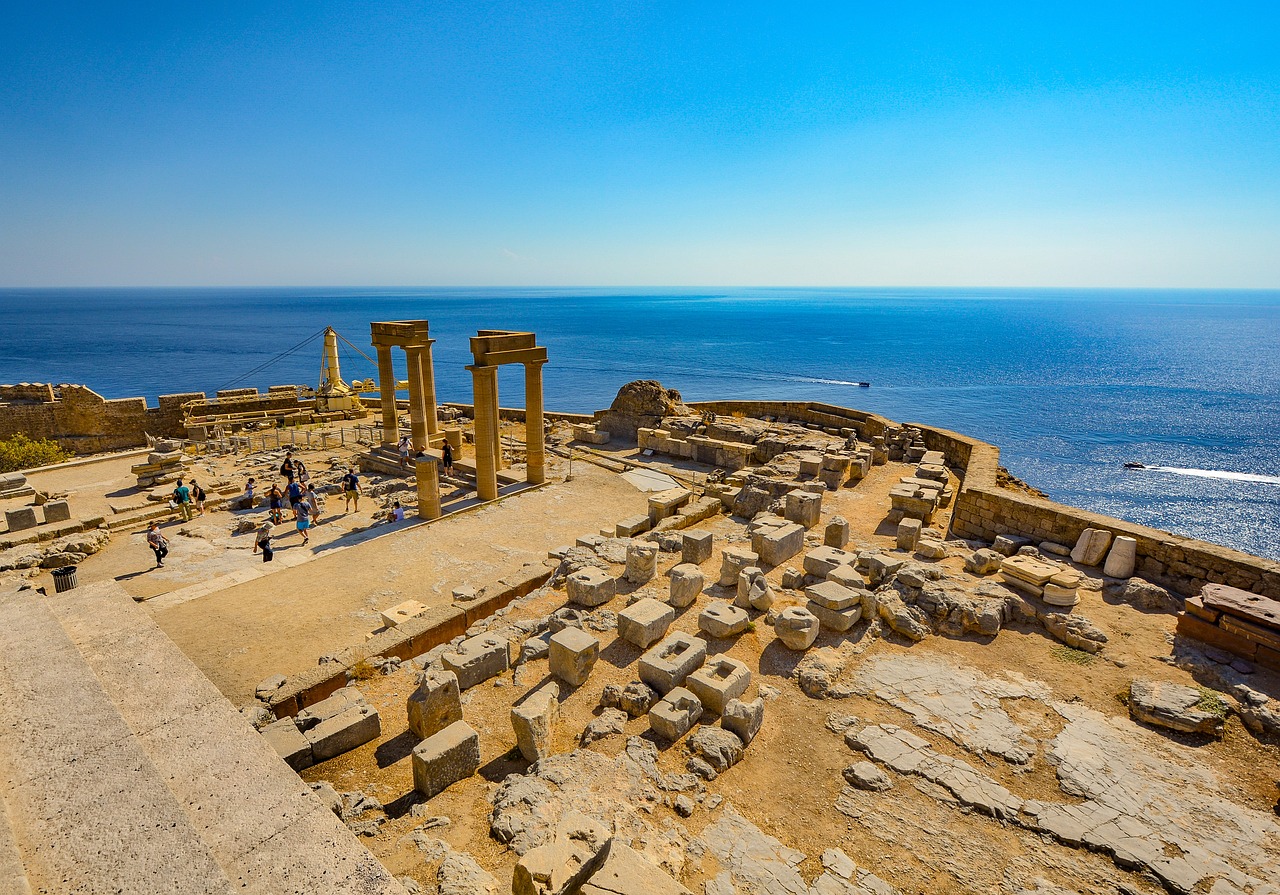
The Legacy of Ancient Greek Literature
Ancient Greek literature stands as a towering beacon in the vast landscape of human creativity, casting a long shadow that continues to influence and inspire generations of writers and thinkers. The legacy of Ancient Greek literature transcends time and space, weaving a rich tapestry of stories, ideas, and insights that resonate with the deepest recesses of the human soul.
From the epic poems of Homer to the philosophical dialogues of Plato, Ancient Greek literature has left an indelible mark on the literary traditions of the Western world. The enduring themes of heroism, tragedy, love, and wisdom explored by Greek poets, playwrights, and philosophers continue to captivate readers and spark the imagination of artists across the globe.
One of the defining features of Ancient Greek literature is its ability to transcend the boundaries of time and culture, speaking to universal truths and timeless human experiences. The works of Greek poets like Sappho and Hesiod offer a window into the hopes, fears, and aspirations of ancient societies, while also addressing fundamental questions about the nature of existence and the cosmos.
Moreover, the influence of Ancient Greek literature extends far beyond the realm of words on a page, shaping the very fabric of Western thought and culture. The enduring legacy of Greek myths, tragedies, and philosophical treatises can be seen in everything from art and architecture to politics and ethics, serving as a foundation upon which the edifice of Western civilization has been built.
As we reflect on the legacy of Ancient Greek literature, we are reminded of the power of storytelling to transcend time and space, connecting us to our shared humanity and the eternal truths that bind us together. The works of the Ancient Greeks continue to inspire, challenge, and provoke us, inviting us to explore the depths of our own souls and the mysteries of the world around us.
Frequently Asked Questions
- What are some of the most famous works of Ancient Greek literature?
Ancient Greek literature boasts a rich array of famous works, including the epic poems "Iliad" and "Odyssey" by Homer, the philosophical dialogues of Plato and Aristotle, the tragedies of Aeschylus, Sophocles, and Euripides, the fables of Aesop, and the lyrical poetry of Sappho.
- How did Ancient Greek literature influence modern literary traditions?
Ancient Greek literature laid the foundation for many aspects of modern literature, drama, poetry, and philosophy. Its themes, characters, and storytelling techniques have inspired countless writers and continue to shape the way we approach storytelling and philosophical inquiry today.
- What is the significance of Greek mythology in literature and culture?
Greek mythology has had a profound impact on literature, art, and culture worldwide. The stories of gods, heroes, and mythical creatures serve as timeless sources of inspiration, exploring universal themes of love, betrayal, heroism, and the complexities of the human experience.
- Why is the legacy of Ancient Greek literature considered important?
The legacy of Ancient Greek literature is revered for its enduring relevance and influence on Western civilization. It has shaped the development of literary traditions, philosophical thought, and artistic expression, leaving a lasting imprint on how we perceive and interpret the world around us.

